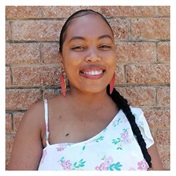When you think of kidney stones, kids don't usually come to mind. But doctors say they're seeing increasing numbers of children with the painful condition, and it could represent more fallout from the obesity epidemic.
While exact numbers of children with kidney stones are elusive, physicians at children's clinics say the numbers are up. "There is very little available on paediatric stone disease in particular," said Dr Caleb Nelson, a urologist at Children's Hospital Boston. "Most data has looked at adults or the entire population."
Still, Nelson and other experts are certain there are more kids with kidney stones, despite hard numbers.
"Proposed reasons include sedentary lifestyle, obesity increase, processed high-salt diets," Nelson said. Some children get the stones, because birth defects in the urinary tract put them at risk for urinary obstruction. "Another subset of children is premature infants who form stones related to the medications they require," he said.
Physicians at the Johns Hopkins Children's Centre in Baltimore say they, too, are seeing more children with kidney stones. Dr Alicia Neu, a kidney specialist at the Children's Centre, said that, while it's unexpected, it's not really surprising, considering that other conditions related to poor diet - such as obesity and type 2 diabetes - are also on the rise.
A kidney stone is a hard mass that results when calcium oxalate or other urinary chemicals form sticky crystals. The crystals grow and become stones that can range in size from a grain of sand to a golf ball, according to the National Kidney Foundation.
Healthy lifestyle will reduce risk
About 90% of kidney stones pass through the urinary tract by themselves within about six weeks with medication, better diet and an increased intake of fluids. But, some need to be removed using procedures such as shock wave lithotripsy, in which high energy shock waves administered from outside the body break the stones into fragments.
There's not much that parents can specifically do to prevent kidney stones in their children, Nelson said. They can encourage their kids to follow an overall healthy lifestyle, which can help reduce the risk. "Eat a balanced diet," he said. "Drink lots of non-caffeinated liquids. Get exercise."
The National Kidney Foundation says high fluid intake may decrease the risk of kidney stones.
If there's a strong family history of stones, consider asking your child's paediatrician about urine screening or a kidney ultrasound to rule out the presence of stones if there are no symptoms, Nelson said.
Typically, people with kidney stones suffer some symptoms, but not always, according to the National Kidney Foundation. These may include severe pain in the kidneys or lower abdomen, which may then move to the groin area. The pain can last from several minutes to several hours and be followed by pain-free periods. There can also be nausea, vomiting, fever, chills, weakness, blood in the urine, or urine that's cloudy or foul-smelling. The urine flow could be blocked, too.
If you suspect your child has kidney stones, get medical attention. Your paediatrician may order X-rays or tests with sound waves, or specialized X-ray techniques to detect stones. Blood and urine tests may also help the doctor decide what is causing the stone and the best treatment option, according to the kidney foundation. – (EurekAlert, September 2008)
Read more:
The latest on kidney stones
Global warming tied to kidney stones




 Publications
Publications
 Partners
Partners














